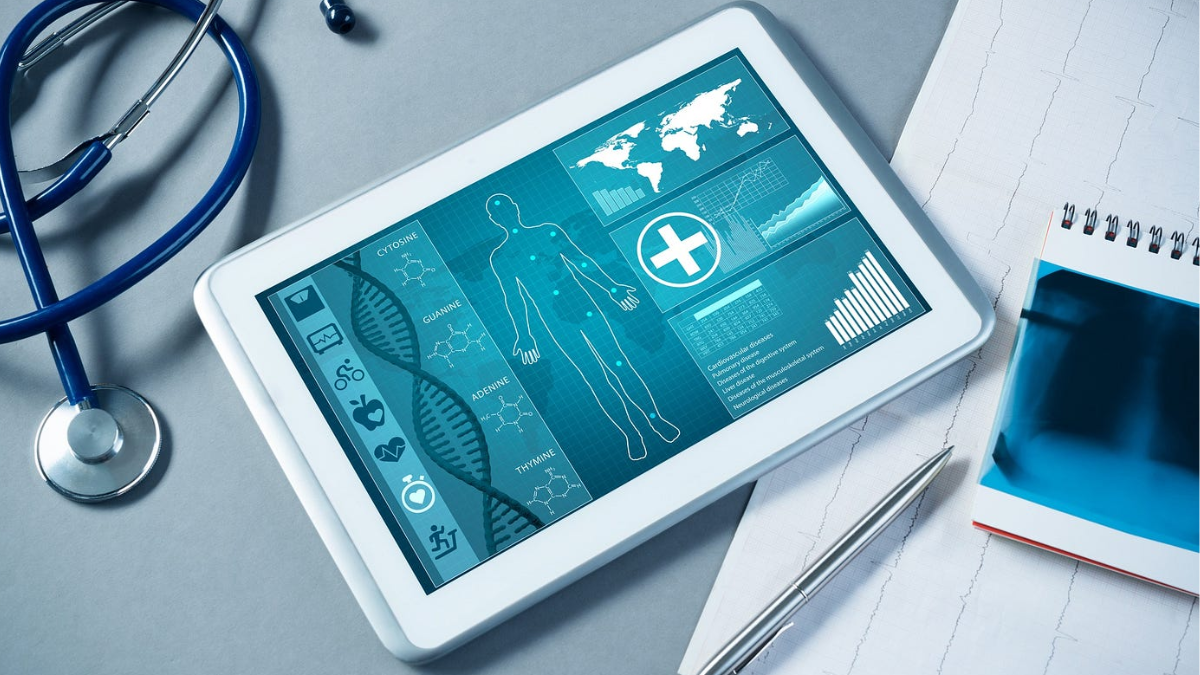Healthcare is evolving faster than ever before. From artificial intelligence (AI) to robotic surgeries and personalized treatments, technology is reshaping how doctors diagnose, treat, and prevent diseases. Patients today have access to more advanced, precise, and affordable healthcare solutions, which were unimaginable just a few decades ago.
In this article, we’ll explore the latest medical innovations transforming healthcare, their benefits, challenges, and what they mean for the future of medicine.
The Changing Landscape of Healthcare
Healthcare has always been influenced by scientific discoveries. However, the 21st century has brought exponential progress in areas such as:
-
Digital health technologies
-
Biotechnology
-
Genomics and personalized medicine
-
Artificial intelligence
-
Robotic-assisted care
These innovations aim to improve patient outcomes, reduce costs, and enhance accessibility worldwide.
Key Medical Innovations Shaping the Future
Artificial Intelligence (AI) in Healthcare
AI is one of the most significant disruptors in the medical field.
-
AI for Diagnosis: AI-powered tools like IBM Watson and Google’s DeepMind help doctors detect conditions such as cancer, diabetes, and heart diseases at earlier stages.
-
Predictive Analytics: AI can analyze patient data to predict potential illnesses before they occur.
-
Administrative Efficiency: AI reduces paperwork, manages patient records, and improves hospital workflows.
Impact: Faster diagnoses, fewer errors, and personalized treatment plans.
Telemedicine and Virtual Care
Telemedicine grew massively during the COVID-19 pandemic and continues to expand.
-
Patients can consult doctors through video calls.
-
Remote monitoring devices track vital signs.
-
Virtual therapy sessions support mental health.
Benefits: Convenient, affordable, and accessible care for patients in rural or underserved areas.
Robotics and Robotic Surgery
Robotic technologies are revolutionizing surgery and rehabilitation.
-
Robotic-Assisted Surgery: Systems like the Da Vinci Surgical System enable minimally invasive procedures with high precision.
-
Exoskeletons: Assist paralyzed patients in walking again.
-
Robotic Nursing Assistants: Help with repetitive hospital tasks, reducing staff workload.
Impact: Reduced recovery times, smaller incisions, and improved patient safety.
Genomics and Personalized Medicine
The mapping of the human genome has unlocked a new era of personalized medicine.
-
Genetic Testing: Identifies inherited risks for diseases like cancer, Alzheimer’s, or heart disease.
-
Targeted Therapies: Medications tailored to individual genetic profiles.
-
Pharmacogenomics: Helps determine which drugs will be most effective for specific patients.
Outcome: More effective treatments with fewer side effects.
3D Printing in Healthcare
3D printing is transforming medical manufacturing and treatment options.
-
Prosthetics: Affordable, custom-fit artificial limbs.
-
Implants: Personalized bone or joint replacements.
-
Organ Printing (in research): Potential to reduce organ transplant shortages.
Impact: Lower costs, faster production, and better patient fit.
Wearable Health Technology
Wearables are becoming an essential part of preventive healthcare.
-
Smartwatches & Fitness Trackers: Monitor heart rate, blood oxygen, and sleep patterns.
-
Medical-Grade Wearables: Track glucose levels for diabetic patients or detect irregular heart rhythms.
-
Remote Monitoring: Provides real-time health data to doctors.
Advantage: Early detection and prevention of chronic diseases.
Regenerative Medicine and Stem Cell Therapy
Regenerative medicine is offering hope for previously untreatable conditions.
-
Stem Cells: Used for repairing damaged tissues and organs.
-
Regeneration: Helping patients recover from spinal cord injuries or heart damage.
-
Organ Growth: Researchers are experimenting with growing organs in labs.
Future Potential: Transformative cures instead of temporary treatments.
Nanotechnology in Medicine
Nanomedicine is revolutionizing drug delivery and disease detection.
-
Nano-robots: Potential to target cancer cells directly.
-
Smart Drugs: Deliver medication to specific body parts with precision.
-
Diagnostics: Detect diseases at the molecular level.
Outcome: More accurate and less harmful treatments.
Virtual Reality (VR) and Augmented Reality (AR)
VR and AR are being used for both patient care and medical training.
-
Pain Management: VR helps distract patients during painful procedures.
-
Surgical Training: AR allows doctors to practice procedures in virtual environments.
-
Mental Health: VR exposure therapy helps treat PTSD and phobias.
Benefit: Safer training and improved patient care experiences.
Challenges of Medical Innovations
Despite exciting advancements, challenges remain:
-
Cost: Many technologies are expensive and not accessible to all.
-
Ethical Concerns: Issues with genetic modification, cloning, and data privacy.
-
Training: Doctors and healthcare staff need advanced skills to operate new technologies.
-
Regulation: Strict approval processes for new treatments and devices.
The Future Outlook of Healthcare
The future of healthcare is about precision, accessibility, and prevention.
-
Precision Medicine: Treatments tailored to individuals.
-
Global Access: Wider reach of telemedicine in developing countries.
-
Preventive Healthcare: Wearables and AI predicting diseases before they occur.
-
Sustainable Healthcare: Eco-friendly medical practices and digital records to reduce waste.
By 2035, experts believe healthcare will be more digital, patient-centered, and technology-driven.
Conclusion
The future of healthcare is being shaped by AI, robotics, genomics, 3D printing, nanotechnology, and telemedicine. These innovations promise faster diagnoses, personalized treatments, and improved accessibility worldwide.
While challenges such as high costs, ethical issues, and training needs remain, the benefits outweigh the drawbacks. With continuous advancements, we’re moving toward a future where healthcare is smarter, more efficient, and more humane.
FAQs
1. What is the biggest innovation in healthcare right now?
AI-powered diagnostics and telemedicine are among the most impactful innovations transforming healthcare today.
2. How does personalized medicine work?
Personalized medicine uses genetic information to create customized treatments that work best for individual patients.
3. Will robots replace doctors in the future?
No, robots will not replace doctors but will assist them in surgeries, routine tasks, and patient care to improve efficiency.
4. How is 3D printing used in medicine?
3D printing creates custom prosthetics, implants, and even experimental organs for transplant research.
5. What role does nanotechnology play in healthcare?
Nanotechnology delivers drugs more precisely, detects diseases at earlier stages, and offers new cancer treatments.

